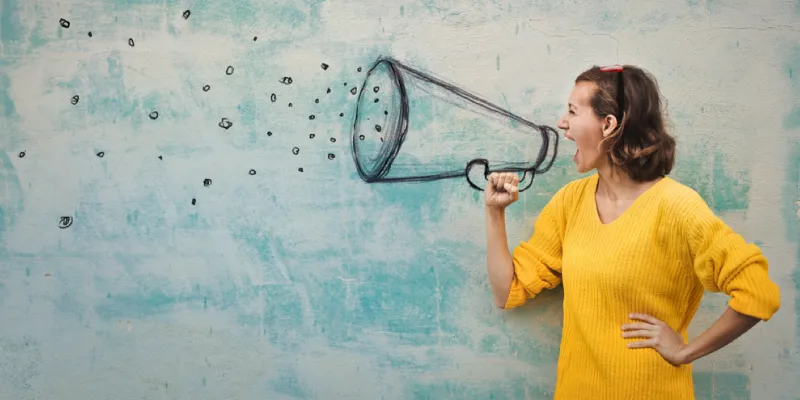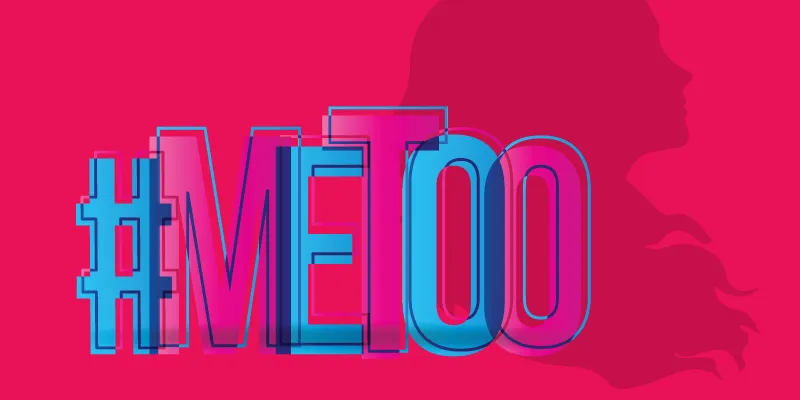#MeToo India gathers momentum, but does it mean #TimesUp?
The dam has burst with women calling out men from the media, film, and entertainment industries, and we hope the floodgates remain open.

Till now, sexual harassment was all in a day’s work for working women across the globe. But with skeletons falling out of the closet, hushed whispers are turning into loud voices. India’s own #MeToo movement is gathering momentum since it broke on social media last week, with names from the media, film, and entertainment industries being called out.
When I was discussing this piece with my 19-year-old son, he insisted I watch a half-hour John Oliver show on Brett Kavanaugh bluffing this way to the Chief Justice position in the US top court. His accuser, Dr Christine Blasey Ford, knew she would be “annihilated” in the process – it did happen - but her courage to speak up must be lauded.
Actor Tanushree Dutta, who unwittingly laid the foundation for the movement sweeping across the country, came out against her accusers, veteran actor Nana Patekar and director Vivek Agnihotri, both Bollywood bigwigs, after 10 years. This time, people stood up and took notice.
Recounting the horror to journalist Barkha Dutta at the WeTheWomen event held in Bengaluru on Sunday, the actor said, “When I initially spoke up, my complaints were rejected outright. Most media reports were either salacious or discriminatory. The film industry and organisations were silent and I chose to walk away. I could not trust myself to walk into a film set again.”
Ten years later, not much has changed. The film industry is polarised, with prominent actors like Amitabh Bachchan, Salman Khan, and Aamir Khan refusing to comment and younger ones like Sonam Ahuja, Richa Chaddha, Parineeta Chopra and others coming out in her support. The perpetrators, meanwhile, have sent her legal notices.
The battle may have just begun, but Tanushree now has the backing of hundreds of women.
A few days after she called out the “perverts” in Bollywood, Twitter was abuzz with news of stand-up comedian Utsav Chakraborty propositioning minors with inappropriate images and lewd comments. This brought Utsav’s former employers, AIB, especially its co-founder Tanmay Bhatt who admitted to being informed about Utsav, into the spotlight. They came up with a half-hearted apology.
On Friday, Bengaluru-based journalist Sandhya Menon opened the biggest can of worms, yet.
She tweeted:
This opened up an avalanche of accusations against senior editors, writers, and celebrities as she opened up her DM for women to post messages anonymously, or otherwise.
In two days, #MeTooIndia had become a movement. Screenshots, messages, and conversations that were until now part of the whisper network became public.

Those named include senior journalists Gautam Adhikari, Anurag Verma, Mayank Jain, CP Surendran, authors Chetan Bhagat and Kiran Nagarkar, and photographer Pablo Bartholomew.
Veteran journalist and politician MJ Akbar was also accused of sexual harassment and inappropriate behaviour by as many as six women, including journalists Priya Ramani, Prerna Singh Bindra, and Kanika Gahlaut. Vinta Nanda, writer of TV show Tara, accused actor Alok Nath of sexually assaulting her on multiple occasions 19 years ago. Tamil lyricist Vairamuthu has also been accused of sexual misconduct.
In less than a week, the floodgates have been opened.
What changed and why
Women have always needed time to find their voice. And if the time is now, it’s better late than ever.
It’s interesting to note that many complaints date back to the early or mid-2000s when there were no proper guidelines on sexual harassment of women in the workplace. It was only in 2013, after many years of formulating the Vishaka Guidenlines, did the Supreme Court pass The Prevention of Sexual Harassment or POSH act.
Despite this, many women failed to come forward for various reasons. Many were just starting their careers and did not want to stand up to powerful people in their organisations and lose their jobs.
As one journalist (who sought anonymity) pointed out, “We were in our early 20s, naïve, and - as women do - placed the guilt on ourselves. We were afraid of the consequences and did not have the recourse to social media that we do now.”
The fear of retribution also led to silence. For calling out comes with consequences. Speaking about a senior editor at a TV channel, a former journalist said:
A chain reaction
As #MeTooIndia gathers steam and more secrets spill out, action is being taken. FIRs are being filed and prominent lawyers are offering their services pro bono to victims. Large media organisations are issuing statements that complaints will be looked into.
Some of the accused have deleted their Twitter accounts; others have apologised publicly. AIB issued a statement that its co-founder Tanmay Bhat was stepping away from his association and the other co-founder Gursimran Khamba was taking a leave of absence. The Editors Guild India also released a statement condemning sexual harassment in newsrooms.
Actor Nandita Das summed it up perfectly.
Speak up for #TimesUp
Sandhya Menon, at the WeTheWomen event, said: “Women feel most vulnerable between the ages of 19 and 25, when they are either interning or starting their careers. But this is also the time when they must speak up because they have less to lose.”
Tanushree believes that “secrets are never healthy for a human being and one must talk about the poison in the system”.
For women to feel secure, organisations must also ensure safe workplaces, where women are given a just hearing when they complain about sexual harassment.
While many accusations may be dismissed in a “she-said, he-said” context, it’s important to maintain the momentum. A movement like #MeToo will only work if collective anger and rage is channelised into positive outcomes.
This may be a small beginning, but it will hopefully bring about a change in the way we look at different things – consent, entitlement, prejudices, patriarchy, and - most of all - the ability to speak up and be heard.







